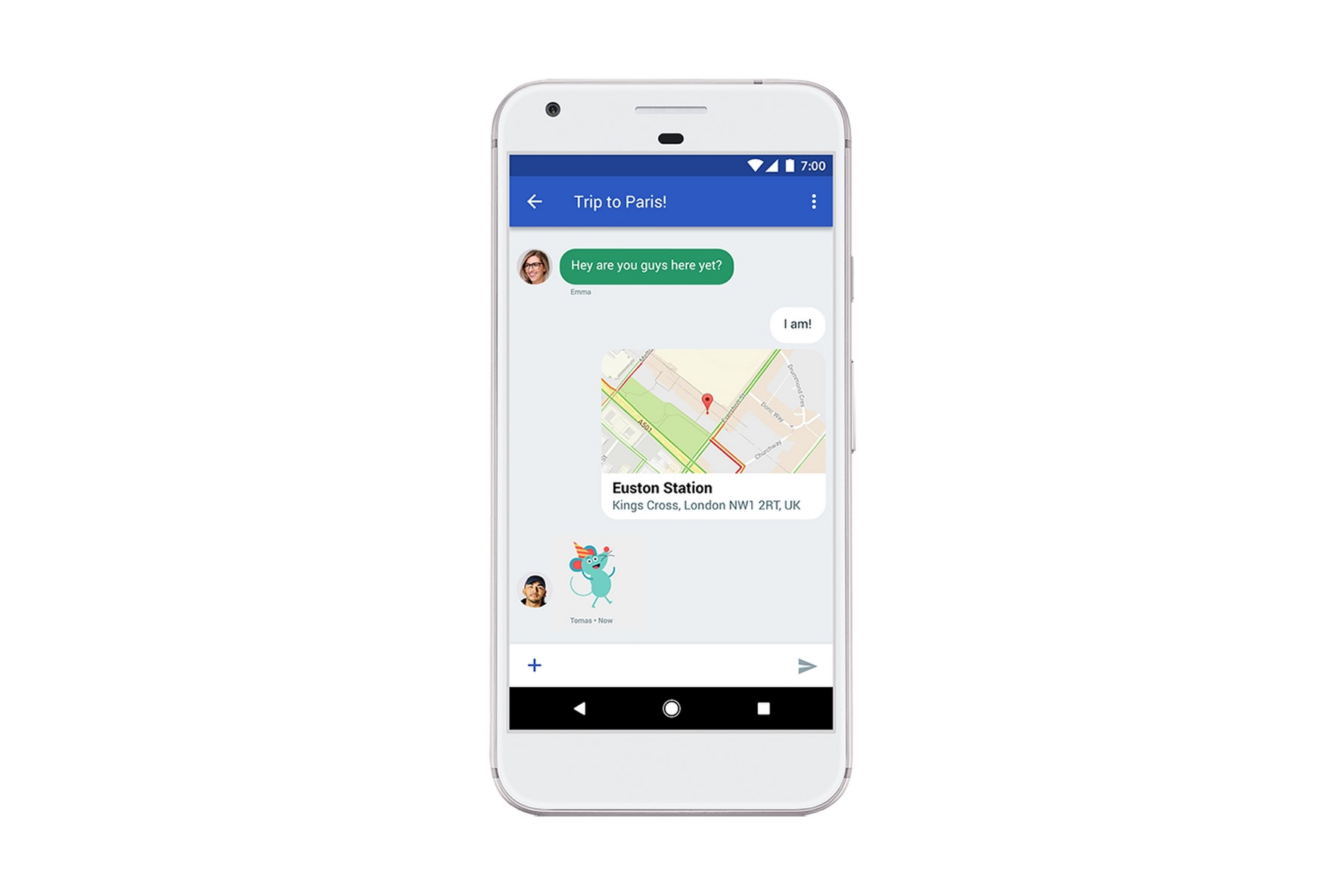Affiliate links on Android Authority may earn us a commission. Learn more.
Here are the Samsung phones that will get RCS support
Published onSeptember 12, 2018

Samsung and Google are teaming up to make RCS better.
Samsung announced today it’s working with Google to make their respective texting apps fully compatible with each other. In other words, Samsung Messages users will be able to use all of the advanced RCS features when chatting with Google’s Android Messages users. These include group chats; the ability to send images, stickers, and files; location sharing; read receipts; typing indicators; and video calls. With RCS, all of these features are part of the basic messaging service that’s tied to your phone number, reducing the need to use WhatsApp, Facebook Messenger, or other similar services.
In theory, RCS could become the overarching messaging service that connects every smartphone in the world. In practice, the rollout of RCS support has been slow and chaotic, despite the best intentions expressed by manufacturers and carriers. Samsung itself dragged its feet, having first announced its RCS rollout in February 2017.
Samsung phones getting RCS support
As part of its announcement, Samsung said it would roll out RCS support to many of its recent flagship phones, as well as some mid-rangers. Starting with the Galaxy S8, the following devices will get RCS support:
- Galaxy S8;
- Galaxy S8 Plus;
- Galaxy S8 Active;
- Galaxy S9;
- Galaxy S9 Plus;
- Galaxy Note 8;
- Galaxy Note 9;
- “select” A- and J-series phones.
In its blog post, Samsung said the devices need to run Android 9.0 or higher, but it’s not clear from the wording if this requirement refers to all phones on the list or just the A- and J-series ones.
Furthermore, “select Galaxy phones on carriers that support RCS” will feature RCS support out of the box.
Carrier support required
“By furthering our robust partnership with Google, we will bring a richer messaging experience to our customers, letting them seamlessly chat with their friends and family across messaging platforms. This collaboration will help further the industry’s momentum toward advanced messaging and global RCS coverage,” said Samsung’s Patrick Chomet.
The big question mark remains carrier support. Carriers control a major part of the complex infrastructure required to support RCS messaging. Without carrier support, you can’t have RCS, despite the best efforts of Google or Android OEMs.
At the last count, 55 carriers from around the world have pledged to support the RCS Universal Profile, which is a set of technical features designed to ensure compatibility between various RCS implementations. Not all of these carriers actually offer RCS already though.
The good news is Google and Samsung seem to be on the same page when it comes to RCS. That will hopefully give the initiative the momentum it needs to become a truly universal service. Well, as close to universal as possible, considering that Apple has shown no intention of ever adopting RCS.